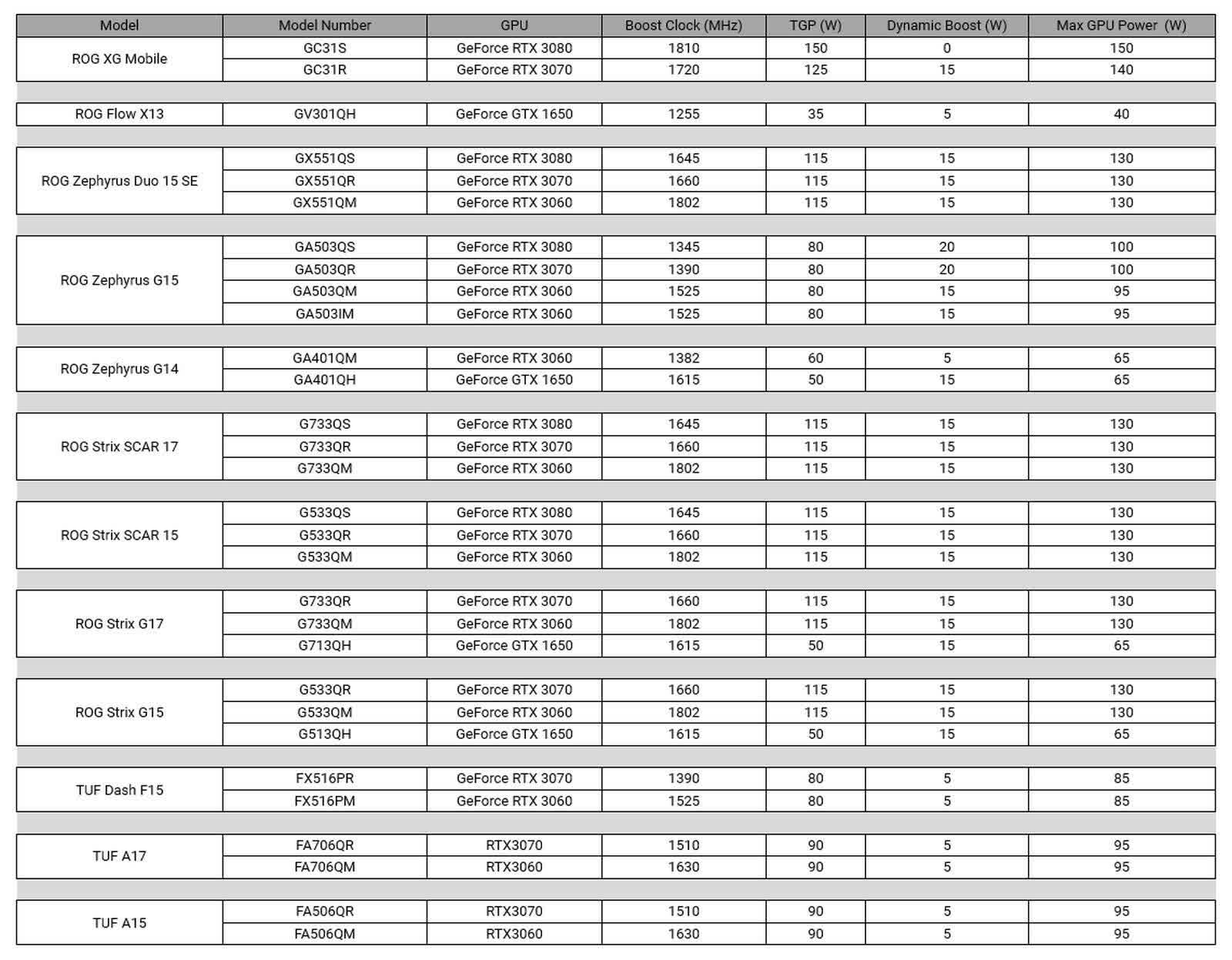Bottom line: Nvidia’s change of philosophy with regards to RTX 30-series laptop GPU branding is a big win for gamers, even though it’ll be a headache for OEMs that would be more than happy to keep you in the dark about which variant you’re getting with a particular laptop.
You need not look further than our review of the GeForce RTX 3060 laptop GPU to understand that while it does offer great value, it comes in several configurations that make it very difficult for the average consumer to differentiate. We’re talking about more than 70 different laptop models across various price points.
In the past, Nvidia used a somewhat acceptable approach that helped potential buyers base their decision on the branding seen on product pages of laptop OEMs. There were still many sub-variants to choose from, but people who wanted lower-power versions would look for “Max-Q” in the name, while enthusiasts who wanted the best performance would hunt for the “Max-P” versions.

Image credit: Asus via Tweakers.net
With 2021 laptops, Nvidia made things more confusing by choosing to name all variants of a given RTX 30-series GPU the same, explaining that optimizations had been made at the system level on all laptops using the new GPUs. After giving it more thought, the company will now require all companies selling these laptops to be more transparent about their graphics subsystems.
In other words, while Nvidia used to encourage manufacturers to state clocks and power consumption on their product pages, now it requires them to do so. However, the Max-Q branding can still be used, albeit for different reasons, such as indicating support for Dynamic Boost 2.0, Advanced Optimus, and Whisper Mode 2.0.
Many RTX 30-series laptop listings have yet to be updated to reflect differences in the clock speed and total power consumption. However, manufacturers like Asus, Acer, Razer, Origin, MSI, Alienware, and Gigabyte have already updated some product pages, so things are moving in the right direction for consumers.

